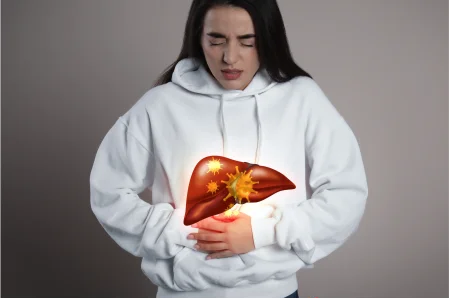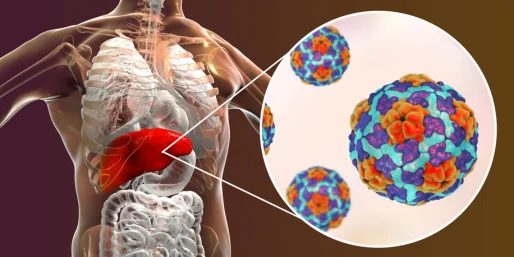Hepatitis A

Hepatitis A is a contagious liver infection caused by the Hepatitis A virus (HAV), which spreads primarily through contaminated food, water, or close contact with an infected person. For effective hepatitis A treatment in Mumbai, it is crucial to seek care at a hospital that specializes in liver diseases. Most people recover from Hepatitis A within weeks or months, but in rare cases, complications can arise, particularly in individuals with existing liver conditions. The best hepatitis A hospital offers comprehensive care, including symptom management and preventive guidance, such as vaccination. Practicing good hygiene and ensuring safe food and water consumption are key preventive measures. While more common in developing countries, outbreaks of Hepatitis A can occur anywhere.
What is Hepatitis A?
Hepatitis A is a contagious virus that is affecting the liver. This is brought on by Hepatitis A virus (HAV) which is is spread through the consumption of food items that are contaminated, water, or through contact with a person who is infected. The infection can trigger symptoms like jaundice, fatigue, fever and abdominal discomfort. Hepatitis A is usually an illness that is short-lived, and the majority of people recover within a couple of weeks to months, however it could create serious complications in isolated cases, in particular patients with pre-existing liver issues.
How does Hepatitis A occur?

Hepatitis A can occur when a person consumes water or food that is which is infected with The Hepatitis A virus. It can occur when hygiene and sanitation procedures are not adhered to. The virus can be excreted from the stool of those who have been infected which means it is spread if water, food or other items come into contact with the feces. It also can be transmitted between people if the proper hygiene of hands is not followed after using the bathroom or prior to preparing or eating food items.
How Common is Hepatitis A?
- Fever
- Fatigue
- Jaundice (yellowing of the eyes and skin)
- Abdominal discomfort or pain, particularly on the upper right side.
- Appetit loss
- Nausea and vomiting
- Dark urine and pale stool
- Joint pain
- Hydration and rest: Rest and hydration: ensuring sufficient rest and ensuring the intake of fluids to avoid dehydration.
- Pain relief drugs: Pain relievers that are available over-the counter like acetaminophen, or ibuprofen can be employed to ease the pain and decrease fever.
- Dietary adjustments: Individuals might need modify their diet to stay clear of foods that are difficult to digest, for example spicy or fatty foods for easing liver strain.
Hepatitis A is prevalent across many regions of the globe, with a particular focus on areas that are prone to low sanitation and access to drinking water that is clean. Based on the World Health Organization (WHO), Hepatitis A is more common in countries that are developing in areas where hygiene and sanitation are often lacking. Although vaccination programs have helped to reduce the prevalence of Hepatitis A in a variety of countries, it is still a problem in a number of people who aren’t vaccinated or tourists visiting areas where the virus is common.
Symptoms of Hepatitis A
The signs and symptoms of Hepatitis A vary from mild to severe, and generally appear between 2 and six months after the exposure. The most common symptoms are:
Many people, including children, can experience minor or no symptoms and others may experience more severe symptoms that require medical treatment.
Treatment of Hepatitis A
There isn’t a specific antiviral therapy for Hepatitis A. The virus usually heals in its own time because the body fights the virus. Many people with Hepatitis A fully recover within several weeks or months. Treatment is primarily focused on relieving symptoms and enhancing liver function, such as:
In extreme cases, when complications occur, hospitalization could be necessary. Patients suffering from the chronic disease of liver or any other medical conditions must be carefully watched during recuperation.



